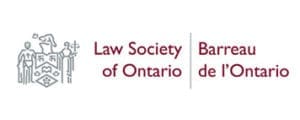Regina v. Stellato
[Indexed as: R. v. Stellato]
12 O.R. (3d) 90
Court of Appeal for Ontario,
January 7, 1993
Criminal law — Impaired driving — Crown not being required to prove that accused’s conduct demonstrated marked departure from that of normal person — Offence being made out where evidence establishes any degree of impairment — Criminal Code, R.S.C. 1985, c. C-46, s. 253(a).
The accused was charged with having the care or control of a motor vehicle while his ability was impaired contrary to s. 253(a) of the Criminal Code.
In convicting the accused, the trial judge stated that s. 253(a) does not require evidence of a marked departure from a norm or standard of sobriety, and that any kind of impairment, however slight, was sufficient to constitute the offence. The summary conviction appeal judge upheld the conviction. The accused appealed, arguing that to prove the offence of impaired driving or care or control, the Crown must prove that the accused’s conduct demonstrated a marked departure from that of a normal person.
Held, the appeal should be dismissed.
The Criminal Code dos not prescribe any specific test for determining impairment. Impairment is an issue of fact which the trial judge must decide on the evidence and the standard of proof is neither more nor less than that required for any other element of a criminal offence. Before convicting an accused of impaired driving, the trial judge must be satisfied that the accused’s ability to operate a motor vehicle was impaired by alcohol or a drug. If the evidence of impairment is so frail as to leave the trial judge with a reasonable doubt as to impairment, the accused must be acquitted. If the impairment establishes any degree of impairment ranging from slight to great, the offence has been made out.
APPEAL from a judgment of a summary conviction appeal court upholding conviction on a charge of impaired care or control of a motor vehicle.
LABROSSE J.A.:–The appellant was convicted in the Ontario Court (Provincial Division) on a charge of having the care and control of a motor vehicle while his ability was impaired by alcohol or a drug, contrary to s. 253( a) of the Criminal Code. His appeal to the Summary Conviction Appeal Court (Ontario Court (General Division)) was dismissed without reasons.
The relevant wording of s. 253(a) is as follows:
253. Every one commits an offence who operates a motor vehicle or has the care or control of a motor vehicle.
(a) while the person’s ability to operate the vehicle is impaired by alcohol or a drug;
While the charge was one of care and control, the section, insofar as impairment is concerned, makes no distinction between the offence of impaired driving and the offence of having care and control of a motor vehicle while one’s ability to operate it is impaired. For ease of reference I will refer to both offences as the offence of impaired driving.
The issue in this appeal is whether the Summary Conviction Appeal judge committed an error of law in his application of the standard of proof required for a conviction on a charge of impaired driving. Specifically, the appellant contends that to prove the offence of operating a motor vehicle while his ability to operate the vehicle was impaired by alcohol or a drug, the Crown must prove that the appellant’s conduct demonstrated a marked departure from that of a normal person.
At trial, the Crown’s evidence consisted of the testimony of the arresting officer and the breathalyser technician who had observed the classic signs of impairment: erratic driving, strong odour of alcoholic beverage, glassy and bloodshot eyes, slurred speech and unsteadiness on his feet. Both police officers had concluded that the appellant’s ability to operate his vehicle was impaired by alcohol.
In his reasons, the trial judge stated:
The question then remains as to whether those observations are sufficient or indeed whether in law what the court requires, in order to convict someone of this offence, is a marked departure from the standard. In that regard I have always had reference to the case of R. v. Winlaw, that is a decision of the Ontario District Court, as it then was, and His Honour Judge Salhany, a case reported at 13 M.V.R. (2d) 112, a judgment rendered some two years ago, December 12, 1988. There, the learned judge went through the law, as was presented to him, with respect to the law of impaired driving and I take that case to stand for the proposition that the section involved here, namely 253( a), creates an offence of being impaired, not markedly impaired, but simply impaired, and it does not require evidence of a marked departure from a norm or standard of sobriety, any kind of impairment, even slight, was sufficient to constitute the offence.
The expression “marked departure from what is usually considered as the normal” originated in the decision of the Alberta District Court in R. v. McKenzie. This was an appeal from a conviction on a charge of driving while ability was impaired.
There appears to be no single test or observation of impairment of control of faculties, standing alone, which is sufficiently conclusive. There should be consideration of a combination of several tests and observations such as general conduct, smell of the breath, character of the speech, manner of walking, turning sharply, sitting down and rising, picking up objects, reaction of the pupils of the eyes, character of the breathing.
If a combination of several tests and observations shows a marked departure from what is usually considered as the normal, it seems a reasonable conclusion that the driver is intoxicated with consequent impairment of control of faculties and therefore that his ability to drive is impaired.
I do not think such a finding should be made on a slight variation from the normal.
What Sissons C.J.D.C. was attempting to formulate was a test for the determination of whether certain conduct viewed objective was consistent only with impairment and inconsistent with some other explanation. He was not attempting to formulate a test as to what degree of impairment will constitute impairment for the purposes of s. 237( a) of the Criminal Code.
Indeed it is significant to note that s. 237(a) makes it an offence to operate a motor vehicle while one’s ability to operate the vehicle “is impaired by alcohol or a drug”. The section does not require that there be a “marked impairment” or any other degree of impairment. Impairment is impairment and any kind of impairment, even slight is enough to constitute the offence.
The test necessary to constitute impairment of one’s ability to operate a motor vehicle has received appellate consideration from different provinces.
In R. v. Bruhjell, an unreported decision of the British Columbia Court of Appeal, released September 18, 1986, the appellant alleged that the Summary Conviction Appeal judge had committed an error of law in failing to apply the test of whether there was a marked departure from normal behaviour, as articulated in R. v. McKenzie. After referring to the last two paragraphs of the quotation from McKenzie, set out above, Macdonald J.A., speaking for the court stated:
In my view, what was said in the McKenzie case, and it has been resorted to in many subsequent cases, including appeals in this court, states no more than an approach to the weighing of the evidence, having the purpose of assisting the judge in deciding if the evidence is sufficient to convict.
He concluded that there had been no error of law and he refused leave to appeal.
In R. v. Campbell (1991), the Prince Edward Island Court of Appeal also considered the test for impairment. Without specific reference to McKenzie, Mitchell J.A., speaking for the court, rejected the requirement for a marked departure from normal behaviour, he wrote:
The Criminal Code does not prescribe any special test for determining impairment. It is an issue of fact which the trial judge must decide on the evidence. The standard of proof is neither more nor less than that required for any other element of a criminal offence. Before he can convict, a trial judge must receive sufficient evidence to satisfy himself beyond a reasonable doubt that the accused’s ability to operate a motor vehicle was impaired by alcohol.
It is not an offence to drive a motor vehicle after having consumed some alcohol as long as it has not impaired the ability to drive. However, a person who drives while his or her ability to do so is impaired by alcohol is guilty of an offence regardless of whether his ability to drive is greatly or only slightly impaired. Courts must therefore take care when determining the issue not to apply tests which assume or imply a tolerance that does not exist in law. Trial judges constantly have to keep in mind that it is an offence to operate a motor vehicle while the ability to do so is impaired by alcohol. If there is sufficient evidence before the Court to prove that the accused’s ability to drive was even slightly impaired by alcohol, the judge must find him guilty. . . .
Finally, the issue of whether there is a requirement under s. 253(a) of a marked departure from normal behaviour was recently considered by the Alberta Court of Appeal in R. v. Smith (1992).
No reference was made to the decision of the British Columbia Court of Appeal in R. v. Bruhjell nor to the decision of the Prince Edward Island Court of Appeal in R. v. Campbell. The court specifically approved McKenzie and rejected the interpretation of that decision of Salhany D.C.J. in Winlaw. At p. 288, it stated:
Salhany Co. Ct. J. also resiled from McKenzie by insisting that “impairment is impairment and any kind of impairment, even slight is enough to constitute the offence”:
R. v. Winlaw. But McKenzie has maintained its force, certainly in Alberta. If it is wrong and Parliament prefers to criminally proscribe any impairment, however slight, accompanying the operation of a motor vehicle, it is free to do so. This seems unlikely where provincial governments concurrently sell intoxicants and driver’s licences (frequently from the same building), and the federal government declines to criminalize the operation of motor vehicles by persons who have consumed alcohol but in amounts less than 80 mg. of alcohol in 100 ml. of blood.
For these reasons we think the “marked departure from the norm” test and R. v. McKenzie should be affirmed.
The court noted in Smith that if Parliament had intended to proscribe any impairment, however slight, it could have done so. On the other hand, if Parliament had intended to proscribe impaired driving only where accompanied by a marked departure from the norm, it also could have done so. With all due respect to those who hold a contrary view, it is my opinion that the interpretation of s. 253( a) which was advanced in Winlaw, Bruhjell and Campbell is the correct one. Specifically, I agree with Mitchell J.A. in Campbell that the Criminal Code does not prescribe any special test for determining impairment. In the words of Mitchell J.A., impairment is an issue of fact which the trial judge must decide on the evidence and the standard of proof is neither more nor less than that required for any other element of a criminal offence: courts should not apply tests which imply a tolerance that does not exist in law.
In all criminal cases the trial judge must be satisfied as to the accused’s guilt beyond a reasonable doubt before a conviction can be registered. Accordingly, before convicting an accused of impaired driving, the trial judge must be satisfied that the accused’s ability to operate a motor vehicle was impaired by alcohol or a drug. If the evidence of impairment is so frail as to leave the trial judge with a reasonable doubt as to impairment, the accused must be acquitted. If the evidence of impairment establishes any degree of impairment ranging from slight to great, the offence has been made out.
In the present case, the trial judge applied the correct test for impairment. There was sufficient evidence adduced at trial from which he could find that the Crown had proved, beyond a reasonable doubt, that the appellant’s ability to operate a motor vehicle was impaired by alcohol at the material time. Consequently, the Summary Conviction Appeal court did not err in dismissing the appellant’s appeal.
I would grant leave to appeal and dismiss the appeal.
Appeal dismissed.
 Canadian criminal law case law consists of court rulings and decisions from past judicial hearings and appeals.
Canadian criminal law case law consists of court rulings and decisions from past judicial hearings and appeals.



